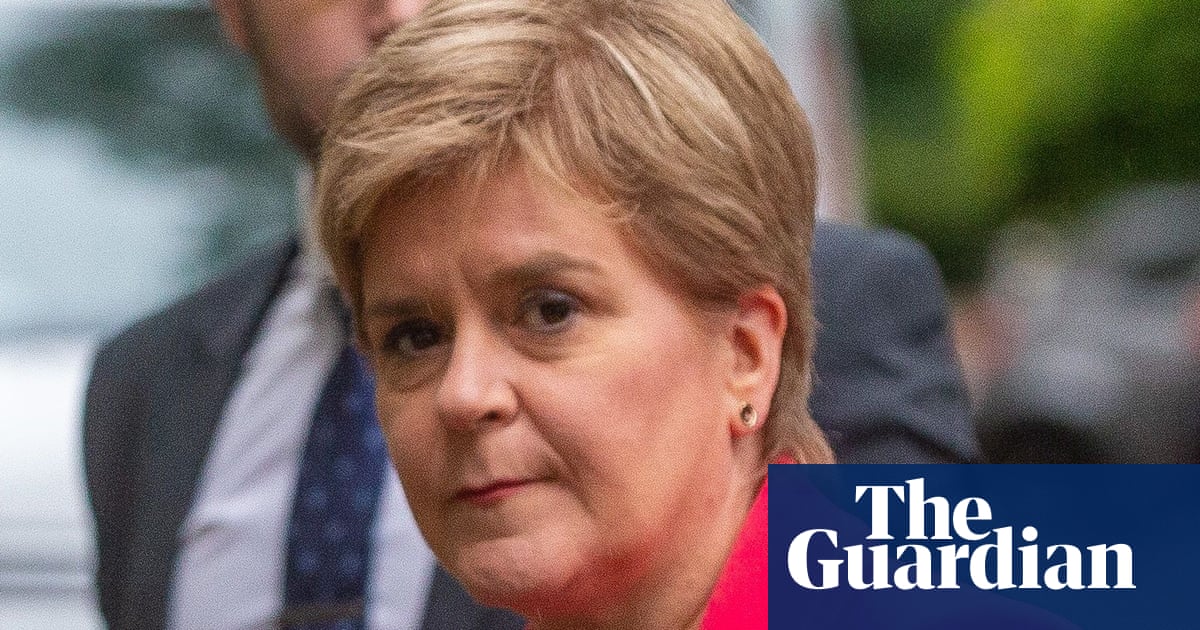
There was “no set plan” in Scotland for dealing with a pandemic of the nature of Covid-19, Nicola Sturgeon has told the UK Covid inquiry.
The former first minister said she accepted that the 2011 four nations pandemic plan – which focused on influenza – was inadequate, but that did not mean no part of it was useful. “There is no plan that will ever completely replicate what happens in reality when a pandemic unfortunately confronts us.”
Sturgeon, who was Scotland’s first minister throughout the pandemic and until she stepped down in March this year, said: “What there wasn’t, and I think this is the significant gap, is there was no set plan and, as I say, that’s not the same as saying there was no thinking, into how we dealt with a pandemic that had features and characteristics of flu in terms of transmissibility, but also the severity and what we came to understand in terms of the asymptomatic transmissibility of Covid-19.”
She said that, in hindsight, politicians and officials would all have benefited from much earlier discussion around issues such as social restrictions, mass diagnostic testing and contact tracing.
“The questions in my mind, literally every day, are not so much did we lack a plan, but did we lack capabilities for dealing with a pandemic of the nature of Covid-19? And obviously I’m talking there about contact tracing, testing, infrastructure in particular.”
Although the remit of this phase of the inquiry headed by Heather Hallett focuses on the preparedness of the UK, Sturgeon said it was “really important for us to consider frankly, could we or should we have done more to suppress Covid to the maximum?”
“It was never the case when Covid struck that we just accepted as a given that a reasonable worst-case scenario was going to unfold. It was our determination from the outset to do everything we could – and this is what prevention means – to suppress it to the maximum.”
She said this later became a point of difference between the Scottish and UK governments, over “the extent to which we were still seeking to suppress as opposed to live with the virus”.
She also described UK-wide planning as working “reasonably well” but said that communication between the UK and devolved administrations remained “too ad hoc”.
Asked about the former health secretary Jeremy Hunt’s admission that “party politics” got in the way of four nations collaboration, Sturgeon said this was “possible to overstate”.
But she acknowledged that Brexit “set the overall tone” for intergovernmental relations. In 2019, time and resources had to be diverted from pandemic preparation to planning for a no-deal Brexit, which the Scottish government was “not at all happy about”, she said.
Sturgeon’s evidence was concluding while the final first minister’s questions was being held before recess. There, the Scottish Labour leader, Anas Sarwar, challenged Sturgeon’s successor, Humza Yousaf, over why bereaved families still had little idea when the Scottish Covid inquiry would begin questioning ministers and officials.
The separate Covid-19 inquiry, set up by the Scottish government, has yet to hold any public hearings after the initial chair resigned last autumn, citing personal reasons, and a new chair, Neil Brailsford, was appointed.
Yousaf said the government wanted the inquiry “to be delivered at speed” and it would do everything necessary to cooperate.
Earlier in the morning, Sir Jeremy Farrar, the former member of Sage and currently the chief scientist at the World Health Organization, told the inquiry: “We’re living in a pandemic age”.
He said it would be wrong to view the Covid pandemic or other influenza outbreaks as discrete episodes. “They are telling us something far deeper about how the world is changing: biodiversity loss, environment, climate change, urbanisation, trade and travel.”
Farrer urged future pandemic planning to take a “cross-government, whole of society approach”, adding “table-top exercises will only get you so far”.
“To forge together public health laboratories, local authorities, hospitals and clinical facilities, general practice, primary care and the research endeavour and making sure that those are working together outside the pandemic and can much better work together in a pandemic would be a huge progress in terms of our ability to have resilience in the future.”












